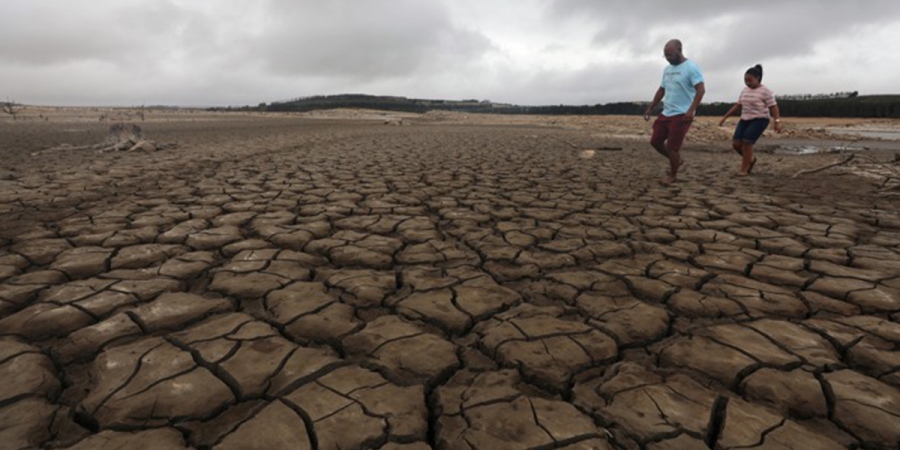Whereas climate change is causing torrential rains in some regions of Africa, it is the source of persistent drought in the southern part of Africa. (By Vivian Forson)
After three years of water shortage, the situation at the end of summer 2017-2018 (last winter in the Northern Hemisphere) reached a critical level in Cape Town (South Africa).
While addressing the media last Monday, the South African Minister for Housing and Water Resources, Lindiwe Sisulu, tried as much as possible but weighed each of her words: Objective: not to create any panic. All the same, the situation is serious. South Africa is facing an unprecedented water stress, after an unusually hot and dry summer, a lower than average rainfall and an increase in water consumption. The levels of dams throughout the country have fallen by between 10 and 60% compared with 2018 levels, according to a recent report issued by the Department of Water Resources.
Worst drought in history
“Rainfalls are more and more difficult to predict. What we have seen, as compared to other regions of the world, is that the dry season has become longer, harsher and more intense. “Climate change is real and it is affecting South Africa”, explained the Minister, cited an AFP source. But access to water depends on three distinct but interdependent factors. The first and the most obvious is the level of rainfall. The second is the design of the water distribution systems and the third is the way people react when there is shortage. To avoid the worst, the authorities have decided to take the lead. “We are working hard to avoid the fearful phenomenon of zero day and we have therefore announced water supply restrictions”, Lindiwe Sisulu ended up by admitting after a long face to face with the media. Officially, the South African authorities have imposed restrictions on water in the major cities of the country. Outcome: several zones from the center to the north of the country have been without water in the last few days whereas South Africa is confronted with a heat wave. This scenario reminds us of what happened last year in Cape Town, at the south-western tip of South Africa, with 4 million inhabitants. In 2018, the city narrowly escaped the zero day after drastic water restrictions then in force. According to Garth Sampson, spokesperson of the South African Meteorological Office in Port Elizabeth, “we must pass on the message. It is terrible. This will not go away. Several records have been broken”.

 English
English  Français
Français 
